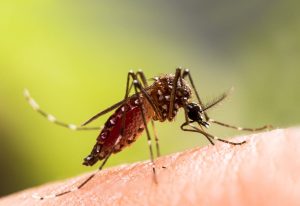 DO YOU factor in the future of the planet when you’re planning your family? When you weigh up whether you want one child or four, are you considering climate change? Should you?
DO YOU factor in the future of the planet when you’re planning your family? When you weigh up whether you want one child or four, are you considering climate change? Should you?
The Guardian, in honor of World Vasectomy Day earlier this month, asked readers — “Can you be an environmentalist and still have kids?” Most readers who responded agreed that choosing to have less children would probably be better for the environment. One reader was adamant that families with multiple children “need to become a thing of the past” because each subsequent child takes away another family’s right to have a single child. Another reader with particularly high self-esteem said he would be having four children because he and his wife both have high IQs and owe it to the world to out-breed the idiots (seriously), while a third suggested it might be far more beneficial for our limited resources if everyone was encouraged to eat less meat, eggs and dairy products.
As The Guardian mentioned in the article, these topics of population control and family planning are usually considered “taboo” in the US, where the one-to-two-child families have now become the norm and not the exception. However, elsewhere in the world where families are generally bigger (due to a number of socio-economic factors and high infancy mortality rates), limiting the number of children being born to individual families is widely touted as a means for saving us all from the effects of global warming.
In an article entitled “The Climate-Change Solution No One Will Talk About,” The Atlantic boils the issue down to a simplistic “equation” — more people being born equals less resources — and touts the population control and family planning methods described above as a viable solution that isn’t receiving enough attention. It suggested that only the right-wing political camp could have a problem with holding impoverished women — those without solid access to electricity, a car, and the latest iPhone (not to mention basic living necessities like clean water and food, in most cases) — responsible for curbing carbon emissions. Because there’s no confusion about whose responsibility it is to bear the burden of that task. Just look at how World Vasectomy Day came and went on November 7th without anyone noticing, and it becomes even clearer when compared to the ebullient celebration of the second-annual “Thanks Birth Control” Day the following week, which focused entirely on female-centric contraceptive choices like the implant or IUD. Unfortunately, there are statistics that support this almost-myopic focus on female forms of birth control: across the board and around the world, women are sterilized at a far higher rate than men.
Which can, and oftentimes do, go horribly wrong, like it did last month when thirteen Indian women died and over sixty more fell critically ill during a mass sterilization program being carried out at a free government camp, with The Guardian reporting blood poisoning or hemorrhagic shock as the likely immediate causes causes behind this human rights disaster. Only last year, tens of Indian women were found dumped unconscious in a field following the same procedure offered at a similar camp. The women, living in the poorest of conditions in a country and trying to bridge the economic divide between the rich and poor that is stark as night and day, were offered electrical equipment and cars in return for undergoing sterilization (the irony). Mass sterilizations like these two botched jobs in India sound like scenes straight out of horror films, but they’re likely the kind of programs that “godfather” of the environmental movement James Lovelock would endorse. Lovelock, whom American leftist publication Jacobin reported on recently, has been extremely vocal about his desire to see a “benevolent dictatorship of science” take the reigns to prevent ecological disaster. But will these kinds of casualties — the lives already being lived sacrificed in the name of ending ones that haven’t even begun yet — become a justifiable evil for a “climate dictatorship” run by the scientists that came up with the equation “less people = cured climate change?”
Hampshire College’s Population and Development program is doing something to fights against the accepted ideology that leads to such events. It is their belief that people should be holding large corporations and the military accountable for their impact on the environment, as opposed to women in poverty. In a report on their website, Director Betsy Hartmann writes that the countries with the highest birth rates have the lowest pollution levels. From 1950 to 2000, the entire continent of Africa was responsible for only 2.5% of the world’s carbon dioxide emissions. Linking family planning to environmental causes makes it all the more likely that quality of care, safety, and freedom of choice will become secondary considerations swept aside in the name of saving the planet. We are all too ready to see overpopulation as the cause behind environmental degradation and political unrest. The myth has conservative beginnings, and yet is presently embraced by those who are otherwise thought progressive. It is not yet widely considered anti-feminist to blame poor women for the destruction of the planet. Hartmann argues that our desire to keep intact the “economic dogma” that allow the rich to stay in wealth and power underlines the reluctance to move beyond the overpopulation equation.
There’s no denying it: population control is not the answer, at least not the best or only one. A recent report published by the National Academy of Sciences argues that increasing access to contraceptives, voluntary family planning, limiting family size — none of it is going to have a significant impact on global warming. Rapidly reducing the consumption of natural resources and developing better ways to achieve sustainability are our real hopes. Co-author Professor Corey Bradshaw concluded: “The corollary of these findings is that society’s efforts towards sustainability would be directed more productively towards reducing our impact as much as possible through technological and social innovation.”
Where does technological and social innovation come from? People. Young, new generations of people, generally. All the polls point to the young having far more progressive ideas than even the most leftist political party. Case in point: “System Change not Climate Change,” the message of September’s massive ecosocialist protest in New York. The source group’s list of demands includes “the economy democratically planned according to social need and ecological sustainability” and “the protection and empowerment of communities most vulnerable to climate catastrophes.”
So, should you factor in the future of the planet when planning your family? Sure. But why wait till you start having kids to make a difference? Why not get started on the innovation yourself?

-300x200.jpeg)









-300x241.jpeg)




